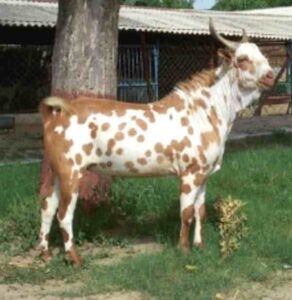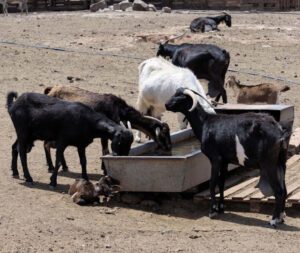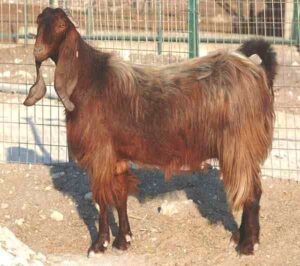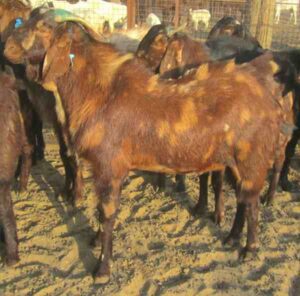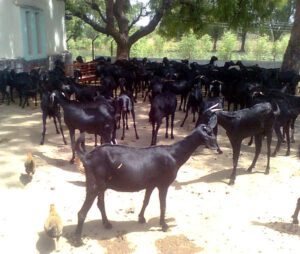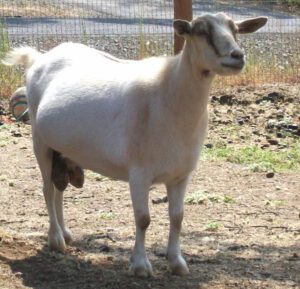The Kinder goat is relatively a new breed of domestic goat developed in 1985. The breed was originated from a cross between a Pygmy goat and a Nubian goat. It was developed at Zederkamm Farm in Snohomish, Washington, United States.
The Kinder goat breed began in the late summer of 1985, when Nubian buck of the Zederkamm Farm died leaving two Nubian does without a mate. There were Pygmy goats at the farm, and they didn’t want to take the does to another farm to be bred.
Rather the Nubian does were bred with their Pygmy buck. The Nubian does were kept to the Pygmy buck’s device, and the buck accomplished the two successful breedings.
The breeding was successful through using log sections and sloping land to reach the correct height. And the first three Kinder goats were born on 30 June and 4 July 1986, all were females/does. And next year, the first Kinder buck was born.
There is a breeders association named the Kinder Goat Breeders Association. And there were about 3000 Kinder goats registered with the Kinder Goat Breeders Association (as of 7 April 2009). Read more information about the Kinder goat below.
Kinder Goat Characteristics
Kinder goat is a medium sized goat breed. There are many color varieties of this breed. The minimum height of both bucks and does is 20 inches (51 cm). And the maximum height for the bucks is 28 (71 cm) inches and 26 (66 cm) inches for does.
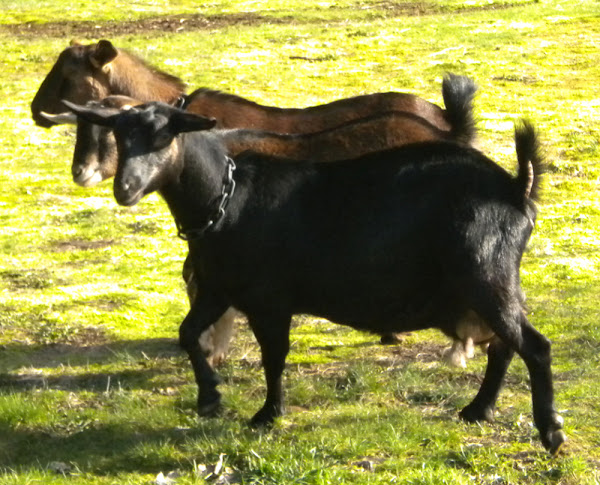
Average body weight of a mature buck is about 61-68 kg, and the does on average weight about 52-57 kg. Photo from Wikipedia.
Uses
It is a dual-purpose breed. It is suitable for both meat and milk production.
Special Considerations
The Kinder goats are very alert, productive and good-natured goat breed. The milk of this breed has a high butterfat content, sometimes having more than seven percent butterfat. Their milk also has higher amounts of milk solids, yielding larger amounts of cheese.
The does are highly prolific, and they can be bred throughout the year. They are noted for frequently having multiple births. Most often triplets, quadruplets and even quintuplets are common in Kinders.
Despite being a small to medium sized breed, the Kinder goats are generally more muscular than a full size dairy goat. And they often yield dressing percentages over 60 percent. Review full breed profile of this breed in the following table.
| Breed Name | Kinder |
| Other Name | None |
| Breed Purpose | Dual purpose. Meat & Milk |
| Breed Size | Medium |
| Buck | About 61 to 68 kg |
| Doe | About 52 to 57 kg |
| Horns | Yes |
| Climate Tolerance | All Climates |
| Coat Color | Various |
| Good for Stall Fed | Not sure |
| Rarity | Common |
| Country/Place of Origin | United States |

